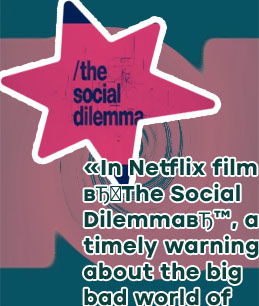Netflix the social dilemma
11 things you can do to stop being manipulated by your phone, according to the tech experts featured in Netflix's 'The Social Dilemma'
RELATED: CU Boulder artist-in-residence nominated for Grammy Social dilemma netflix The creators or workers associated with major social apps all mentioned that they have the notifications for their phones turned off, and most of them do not even have social media.
The social dilemma on netflix
For the first 50 years of Silicon Valley, the industry made products like hardware and software and sold those products to customers. The business model was so much more simple back then. For the last 10 years, the industry has been in the business of selling their users. Users are the new trillion dollar hardware and everybody wants a piece of you. Summary That's the exact story I see with technology. It started so innocently. Twitter started off as an art project, fueled by the desire to connect people and share their stories. We now see the business model that got entrenched in these platforms has become so powerful — it's worth more than the fossil fuel industry, it's the richest industry in the history of money. It's so incredibly powerful that it's really, really difficult to change. Despite good intentions from the people inside these companies, the changes I see happening are Band-Aid solutions. They're not addressing the fundamental problem.
DISCOVER MORE FROM CBC
As many of these tech companies were high-profile corporations, the production was kept pretty quiet, Orlowski said. They didn’t want to risk anything getting leaked while they were making it. After the film came out, however, Facebook was the only company mentioned in the documentary that issued a public response. Following the Jan. 6 riots at the U.S. Capitol a few months after the release, Facebook also started to try and change its actions internally after much scrutiny. Why the Netflix movie falls short as a critique of Silicon Valley There are teams of “attention engineers” who try to make these products as addictive as possible. “Growth hackers” were commonly used teams designed to hack user psychology in order to grow engagement. Their job is to implant addictive tendencies in the human mind. The Social Dilemma interviews one of the first growth-hack leaders at Facebook, Chamath Palihapitiya. He is now reformed and dedicates his life to making people aware of this massive problem that he helped create.
